(Dulce et Decorum est Pro patria mori)

On the evening that B and I had planned to spend with Janet Suzman in London, she told us that unfortunately she would be out as she was performing in a concert. I pricked up my ears. “Concert? Would you mind if we came too?”
Two tickets were organised! She told us a bit about the “concert”. This year it was one hundred years since the start of World War 1. That night they would be commemorating that war. A choir would be singing Rachmaninov Vespers All-Night Vigil (which was apparently written in 1915 to boost the Russian war effort) and Orlando Tenebrae by James Weeks. The music would be interspersed with poems read by Jan. The first half, the readings would be modern. Poetry about lives that were lost and changed during wars. The second half would be Wilfred Owen’s poetry concerning The Great War.
Owen wrote out of his intense personal experience as a soldier. He wrote of the physical, moral and psychological trauma of the First World War. All of his great war poems were written in a mere fifteen months. Most school children have done his well known poem, Dulce Es Decorum Est. I have just re-read it and I can almost recite those well remembered lines. The Great War was meant to be “the war that ends all wars!” Twenty six years after it’s conclusion, the Second World War began…..
The concert was being held in a church, St Batholomew’s the Great. Jan had to go and rehearse in the afternoon so she gave us directions. “Come early. There are plenty of places around Smithfield where you can have a drink beforehand.”
We left at 5.30 and hopped onto a bus. I love travelling by bus in London. The English architecture is quite staggering in it’s beauty, the mis-mash of people, the London cabs, the hustle and bustle. Yes, I love London! B and I were jubilant as the bus dropped us directly outside that beautiful church, St Bartholomew the Great, otherwise known as Great St Barts! And sure enough, nestled on the street opposite we found a charming wine bar! We went in and ordered drinks and supper. While we waited, I googled St Bartholomew on my I-Pad. It was so interesting reading about the Augustinian building I was due to enter. It was founded in 1143.
“St Bartholomew’s was established by Rahere a courtier and favourite of King Henry I. He renounced his profession for a more worthy life and made his pilgrimage to Rome. Once there, he fell ill. As he lay delirious he prayed for his life vowing that, if he survived, he would set up a hospital for the poor in London. His prayers were answered and he recovered. As he turned for home the vision of Saint Bartholomew appeared to him and said “I am Bartholomew who have come to help thee in thy straights. I have chosen a spot in a suburb of London at Smithfield where, in my name, thou shalt found a church.”
True to his word Rahere set up both a church, a priory of Augustinian canons, and the hospital. He lived to see their completion – indeed he served as both prior of the priory and master of the hospital – and it is possible that he was nursed at Barts before his death in 1145. His tomb lies in the church.”
 We entered the church and I gazed around me in awe. It was a bit dark inside but the evening shafts of sunlight combined with the magnificent stonework gave this church a glorious ‘presence.’ It was staggering in it’s austere beauty.There was quite an audience. The congregation sat on two sides with the pews facing each other. At the head of the church sat Selwyn College Choir from Cambridge. There must have been about thirty of them. We had a program and that gave us some idea of what was happening.
We entered the church and I gazed around me in awe. It was a bit dark inside but the evening shafts of sunlight combined with the magnificent stonework gave this church a glorious ‘presence.’ It was staggering in it’s austere beauty.There was quite an audience. The congregation sat on two sides with the pews facing each other. At the head of the church sat Selwyn College Choir from Cambridge. There must have been about thirty of them. We had a program and that gave us some idea of what was happening.
Janet opened the performance by reading The Desert by Adonis (The diary of Beirut Under Siege, 1982) She is such a glorious performer. Her low, resonant voice squeezed emotion from the poem, laying it bare before us. Then the choir began. As the notes rang out around that magnificent church, my eyes filled. I was hearing a sound of such incredible beauty. I am sure everyone was moved. But it was different for me. For years my sound had been taken away. For eighteen years my music had been lost to me.  Now, thanks to my two Cochlear Implants, I had it back in all it’s vibrant glory. I could hear the notes ricochet around that beautiful cavern of a church straight into my heart. The conductor of the choir was a small woman but what mastery and magic she conjured up for us that evening. The sounds that she coaxed, evoked and manipulated out of that choir were angelic, indeed they seemed from another world. The notes seemed to embed themselves in the air around us.
Now, thanks to my two Cochlear Implants, I had it back in all it’s vibrant glory. I could hear the notes ricochet around that beautiful cavern of a church straight into my heart. The conductor of the choir was a small woman but what mastery and magic she conjured up for us that evening. The sounds that she coaxed, evoked and manipulated out of that choir were angelic, indeed they seemed from another world. The notes seemed to embed themselves in the air around us.
My favourite poem that evening was by Visar Zhiti (b.1952) written in Qafe-Bari prison camp in 1983. He is the Albanian writer whose life and works perhaps best mirror the history of his nation. He was one of the many who suffered appalling persecution for no apparent reason. But Visar Zhiti survived, physically, intellectually and emotionally, and he is now among the most popular poets of present-day Albania.
How far my night is
from your night!
Other night rise between them like uncrossed mountains.
I sent the road our for you. But it didn’t find you.
It grew weary and returned to me.
I sent out the roebuck of my song. But
The hunter shot it and, wounded,
it returned to me.
I don’t know which direction the wind took. It got lost
In the trees and in the caverns of pain, and returned to me, blinded.
Rain is falling, robbed of hope.
Tomorrow when day breaks, shall I send out a rainbow
To look for you? Though as naive as joy itself
It can only cross one mountain.
I shall set out in the night myself.
I shall search, I shall search, I shall search
Like a hand groping in the darkness of a room,
to find an extinguished candle.
I will carry that evening inside of me. War is such a tormented, ugly thing. There, in the magnificent church of St Bartholomew the Great, it was remembered in all it’s anguish, horror and despair.
The music, the poetry, indeed that whole evening, paid homage to Man in that dark, dreadful, cold, place of War.







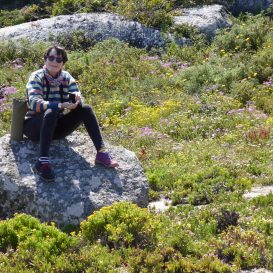

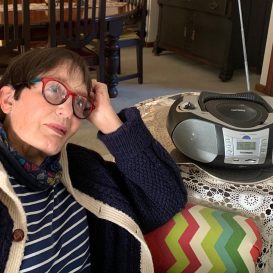

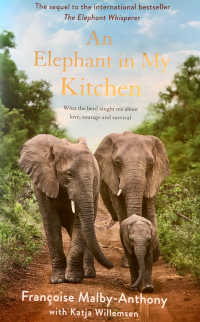

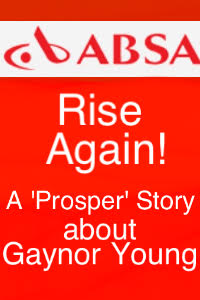

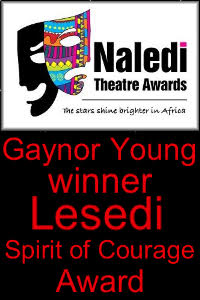



I know London well enough to be able to absorb your blog and feel your wonder. My favourite poet of that era is Rupert Brookes….best wishes
You draw us onto your world so wonderfully, Gaynor. War is so ever present on our lives today : as we remember the ‘war to end all wars’ so we weep for those who die today as a result of war. We are all human and feel pain, feet, loss and grief on the same way – and yet we never learn that the only diction is peace. We choose war and war and war and today weave memory and 24 hour news together to form a single narrative. Thank you for being a light guiding us to peace – your words promise that it is still possible. God bless you, Gaynor. Thank you.
Yes, Jane, you have said it so eloquently. Why do we never, ever seem to learn???
Thank you for always reading my blog. Am up in Dbn at the moment. So WISH I could have seen you on Saturday!
Softly I kiss your eyes
Gaynor
I suppose, our job is to bring beauty out of ugliness and hardship if we are not able to do anything about stopping them in the first place. It sounds like you had an amazing experience. Thank goodness for medical technology and cochlea implants and everything else it can do!
I cannot even begin to express the joy that technology has given me, Margaret!
With a smile I kiss your eyes
Gaynor
How beautifully you described this occasion Gaynor, I felt I was there with you! We can be so grateful that we can remember times which have so much meaning to us. A wonderful memory. Love.
Yes, Romary, isn’t memory the most wonderful thing!
Softly I kiss your eyes
Gaynor
Dear Gaynor how wonderful that your implants have allowed you to enjoy pleasures such as these. Such a pity that this wasn’t broadcast so that we could have enjoyed what sounds like a beautiful tribute! Your writing more than made up for that! Thank you. Love & miss you xxx
I love and miss you, Ms Crouch! I sat there in that service thanking God for enabling man to have given me back my “hearing”!
And you’re right; it should have been broadcast.
Love you, sweet Patsy. Softly I kiss your eyes
Gaynor
Soft laugh – well, you had a dog for each eye! I so love you always reading and commenting on my blogs, Mums. Thank you….
Softly I kiss your eyes, over and over
Gaynor
Beautiful my girl,you have had me weeping this am. Perdita and Brendan are trying to lick my tears away.Go well today I will be thinking of you.All love Mums.
Comments are closed.